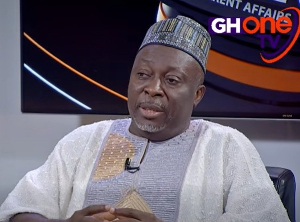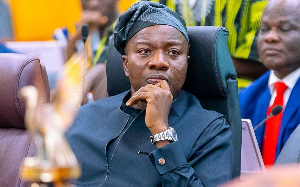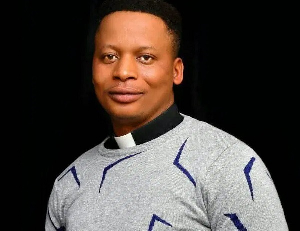By Honourable Saka
Ghana is a small country with relatively the size of the United Kingdom. The country has a population of about 25 million people, most of whom are the youth: young, vibrant, energetic but with no jobs. It is relatively a very peaceful country as compared to many of her sister nations in Africa. However, the major challenge that often poses a great threat to the peace and stability in the country has been as a result of elections and political tension, where a few irresponsible politicians often make reckless statements on radios in an attempt to incite tension among the supporters of the various political parties. In every election year, politicians increasingly spread fear and panic across the nation.
Commenting on this worrying development, N Atta Kusi Adusei, a broadcast journalist and internet entrepreneur, expressed the following concern on twitter: “It is ONLY an election, and almost everybody is worried about peace? The entire election process is indeed a threat to our National Security!”
Indeed anyone who takes a critical look at the kind of civil war that broke out in other countries as a result of political elections would always have a cause to be concerned about the fate of Ghana in the coming elections. At the moment, there appears to be some sort of thick clouds hanging over the country as a few selfish politicians could jeopardize the existing peace.
In spite of this, the people of Ghana have previously been hailed across Africa and the outside world for their democratic credentials in the previous years. Unlike elsewhere in Africa (Ivory Coast, Kenya, etc) where electoral disputes have resulted in serious conflicts and civil wars that left several tens of thousands dead, the majority of Ghanaians on their part have always demonstrated their political maturity during previous elections, the recent one being in 2008.
Election 2012: The Real Issues Ignored In 2012, Ghana is expected to go to the polls to once again choose a leader for the next 4 years. Sadly, there are many of those who have become politically fanatic such that their votes will not be based on issues but rather on political inclinations. Many are going to votes for their candidates, not because such candidates have the capability to deliver. Rather, such votes are informed by their so-called “loyalty to their parties”. This means, whether such candidates have realistic and achievable vision or not, is not really an issue that matters. Therefore, as long as majority of the people continue to vote this way, there will never be a real change in the country’s political landscape. After all, since many of such candidates believe they can win by their party majority, their inability to deliver on campaign promises really do not count as an issue in the subsequent elections. It is a matter of contesting and winning the elections with or without any vision. This is indeed a very dangerous development in Ghana’s political future.
On Education: Free Access vrs Equal Access Currently, among the issues that have dominated the political debates are: “Free” secondary school education versus “equal” access to secondary education, “free” health healthcare versus“equal” access to healthcare. Others are promising increased salary for the civil service especially the teachers. Interestingly, it looks as if the civil servants are usually remembered only during campaign periods.
Some pressure groups have also stressed on the need for Ghana to nationalize her natural resources and put the profits into state coffers, just as it is currently being done in Zimbabwe where privatization of state institutions have been abolished altogether. In Ghana, it is a common knowledge that since the overthrow of Nkrumah’s government in 1966, successive governments have been selling off all the state-owned institutions to their private financiers, under the guise of “privatization”. But how does this happen? The answer is not far-fetched.
During campaign periods, many of the politicians often travel abroad on a fundraising tour. Usually, it is at this period that they sign all those bogus agreements with their “donors”, promising in return to sell of state assets to these private investors. Mind you the donors are business investors. Therefore once they make such “donations” they expect to receive something very huge in return which the politicians do now have.
When they agree to sponsor the African politicians with huge sums of money, they demand in return that once such African leaders win the elections, they should sell off some of the state-owned institutions/assets to them for them to recover their expenses. This is the major reason why successive Ghana governments and others in Africa have been selling off all state-owned businesses to foreign companies under the guise of privatization.
The Awakened Ghanaian Youth and the Way Forward Many of the young ones who are currently angered by previous failed promises, have also made their voices heard, stressing on need for more jobs to be created. Anti-corruption campaigners are also stressing on the need for the youth to rise up and fight corruption at every level: the educational institutions, the oil and gas sector, the banking sector among others. Religious leaders have also waded into the debate, urging the people not only to fast and pray for peace and unity but also to help fight corruption and hold the government accountable to effectively managing the country’s oil revenue.
There are a few members of the Project Pan-Africa (PPA) who strongly suggest that, it is time for the people of Ghana and Africa in general to have a clause enshrined in their constitutions that will pave way for politicians to be held accountable and prosecuted for failing to deliver on their campaign promises to the people.
This suggestion has been hailed by many in the country as a perfect suggestion that must be taken serious by the Ghana’s constitutional authority and the rest of Africa as well.
Concerned Citizens To Boycott the 2012 Elections? Over the years, many political leaders in Ghana have promised to effectively invest in the youth and to ensure effective job creation as a means to calm the high rate of unemployment that has forced many of the young ones to engage in all sorts of crimes and social vices (armed robbery, prostitution, drugs, etc), as a means of survival. Unfortunately, though the lives of the politicians continue to improve with fat salaries, luxurious accommodation, expensive cars, “ex-gratia” among other benefits, the conditions of the ordinary voter who took the politicians on trust and voted in their favour, have not improved. The youth are therefore becoming tired of the repeated failed promises of the politicians. Some are therefore calling on the entire country to boycott the elections altogether. Though this call may not lead to the complete boycott of the elections, it is however expected that, such a move will help put pressure on the politicians to understand that the people are gradually waking up and sooner or later, they can no longer be taken for granted.
Honourable Saka The writer is the project coordinator for the Project Pan-Africa (PPA), a Pan-African youth organization established to stimulate a mental revolution across Africa, challenging the youth to take Africa’s destiny into their own hands. The PPA is also determined to provide the biggest platform that will give exposure to Africa’s hidden but exceptional talents to the outside world. Visit us at www.projectpanafrica.org. and email him at: honourablesaka@yahoo.co.uk PPA is sponsored by ITech Plus
Opinions of Saturday, 27 October 2012
Columnist: Saka, Dr














